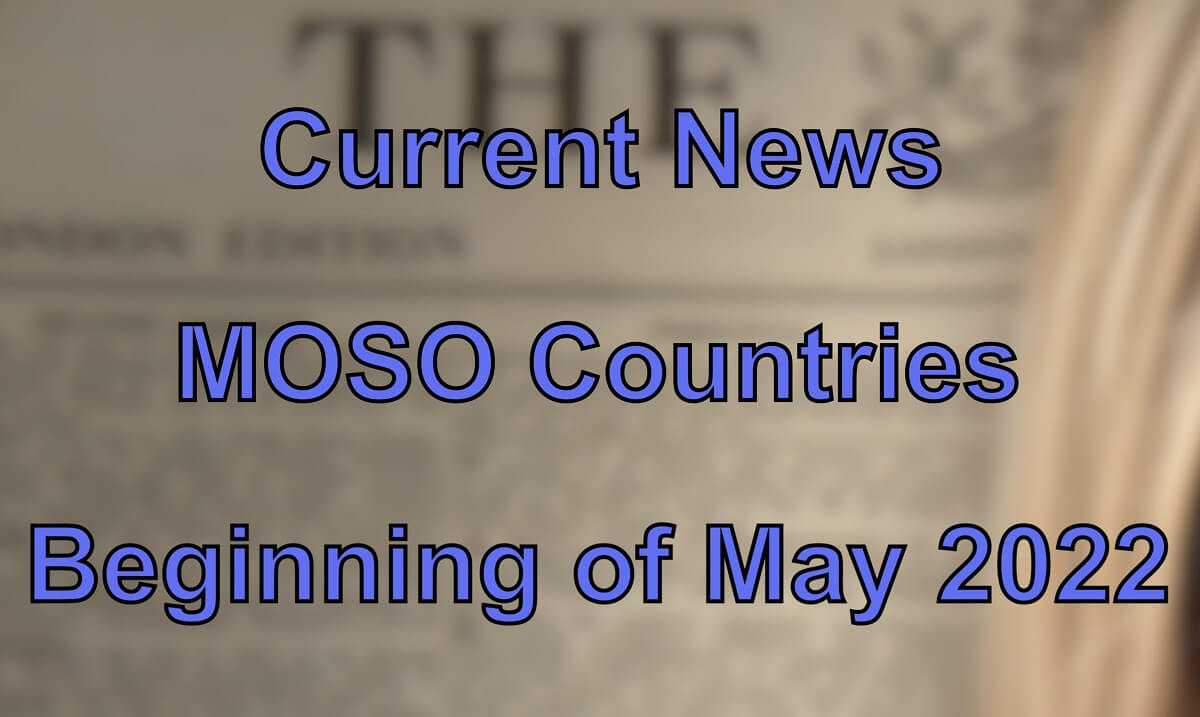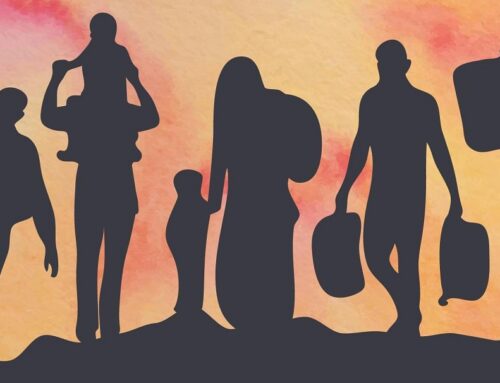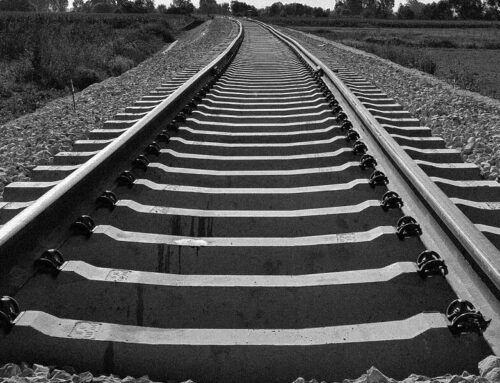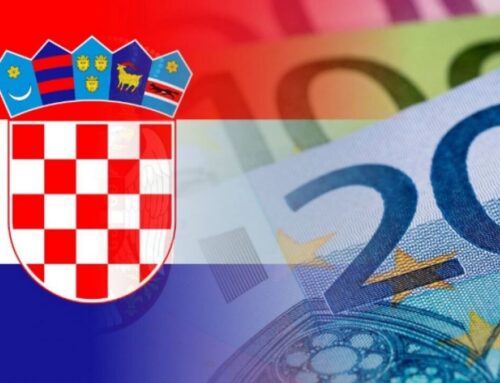The Baltic states:
- Journalists of Russia’s hard-hitting opposition newspaper Novaya Gazeta launched officially started their activities in Latvia. It was shut down in Moscow weeks ago being led by Nobel Peace Prize-winning editor Dmitry Muratov due to increasing pressure on opposition media.
- Estonian Foreign Minister Eva-Maria Liimets, Latvian Foreign Minister Edgars Rinkevics, and Lithuanian Foreign Minister Gabrielius Landsbergis visited Ukraine last Friday to express the unwavering support of the Baltic states to Ukraine and its people. The foreign minister underlined that the reconstruction accompanying Ukraine’s reforms would take the country closer to European Union and NATO membership. Furthermore, the interior ministers of the Baltic countries and Poland visited Ukraine and signed a multilateral agreement on cooperation in the prevention of transborder crime and the resumption of the Ministry of the Interior Affairs of Ukraine operations upon the end of hostilities.
- Estonia has supplied weapons and munitions to Ukraine worth 230 million euros in total since the start of the military operation that is 33,1% of the overall Estonian defense budget. Latvia followed by giving up military help accounting 31,2% of its own defense budget.
- According to Eurostat Estonia’s annual inflation was 19 per cent, the highest in the entire euro area. Lithuania and Latvia had the second and third highest increases, at 16.6 per cent and 13.2 per cent, respectively. Eurostat’s flash estimate says the average annual inflation in the entire eurozone was 7.5 per cent.
- Baltic and Finnish gas markets are no longer in isolation from the European gas network as the official launch of the newly completed Poland-Lithuania gas pipeline takes place. Meanwhile, talks between state-owned system operator Elering and private company Alexela over the financing model for the construction of an LNG unloading terminal are failing and Estonia’s private gas importer and seller Eesti Gaas bought the largest amount of US-origin liquefied natural gas (LNG) to date, covering customers’ gas needs for the next two months. The reserve arrived in Klaipeda.
- Latvia’s Green Party (LZP) has decided to leave the Union of Greens and Farmers (ZZS), and for the upcoming parliament elections will run on a joint ticket with the Latvian Alliance of Regions (LRA). On May 10 LZP, Liepaja Party and LRA launched a new political platform.
Ukraine:
- The Ukrainian army successfully attacked Russian forces at Zmiiny island. A Russian landing boat and two missile systems were hit near Zmiiny Island on 7 May.
- To avoid clashes on anniversary rallies on 8 and 9 May, Berlin municipal authorities banned Ukrainian state flags along with the Russian flags and the symbols of Russian invasion of Ukraine and military propaganda: the flags of the separatists ‘republics,’ ‘Z’ and ‘V’ signs, and Saint George ribbons. Ukrainian foreign minister Dmytro Kuleba called the decision a mistake and ‘an attack on everyone who now defends Europe and Germany from Russian aggression with this flag in hands.” Regardless of that, USSR and Russia supporters were not stopped by police during that day, meanwhile people wearing yellow and blue clothes were asked to remove one of the items as it might provoke a backlash between Ukrainians and Russians.
- The Foreign Minister, Sergey Lavrov, commented during an interview with an Italian broadcaster Mediaset, that Adolf Hitler also had ‘Jewish blood.’ The Minister also suggested that ‘the most ardent anti-Semites are usually Jews.’ Israeli Foreign Minister Yair Lapid called Lavrov’s comments ‘the lowest level of racism.’ Russian MFA then escalated the situation by tweeting about Lapid’s ‘anti-historical statements,’ that explain the current Israeli government’s orientation towards supporting the neo-Nazi regime in Ukraine. Afterwards, Israeli Prime Minister Naftali Bennett said that Vladimir Putin apologised for Lavrov’s remarks over the phone.
- The General Staff of Ukrainian Forces informed of a high probability for intensive rocket missile attacks in all regions of Ukraine on 9 May. More than 10 Russian missiles attacked Ukrainian Odesa from the Black Sea that day. Ironically, this same moment Vladimir Putin was commemorating those dying in Odesa during WWII strikes.
- During intensive fighting in the Luhansk region the Russian army tried to cut off Ukrainian forces, particularly by taking control over the route ‘Lysychansk — Bakhmut,’ the lifeline for Ukrainians there. Fighting continues in Rubizhne, Bilohorivka, however Ukrainian troops recently withdrew from Popasna. In Bilohorovka Russian air bomb killed 62 civilians hiding in a local school (30 survived under the wreckage). Russian troops fired on evacuation routes from the region, and evacuation was interrupted as on 8 May.
- As civilians from besieged Azovstal are reported to be evacuated, not all of them made it to safety: many had been abducted to the Russian filtration camps on the way. At least one case of a 4-year old evacuated to Zaporizhia, as her mother was detained in a camp, is confirmed. Three Ukrainian soldiers were killed, and six injured while securing the evacuation as Russians attacked the buses. The commanders of the Azov battalion, the Mariupol defenders trapped in Azovstal now, gave a press conference on 8 May, criticising the high command in Kyiv and asking for extraction (evacuation of troops by a third party to a third country without permission to join the army till the end of war).
- After Annalena Baerbock visit to Ukraine, German Embassy returned to Kyiv. The US Embassy took the same decision, as well as the embassies of Sweden, Croatia, and Canada, and the Embassy of the United Kingdom earlier. German MFA announced that they will accept granting Ukraine only with the full membership.
- Jill Biden, the first lady of the United States visited Uzhgorod, the city in western Ukraine, near the Slovakian border. She was welcomed there by Olena Zelenska, the spouse of the Ukrainian President. Meanwhile, Canadian Prime Minister Justin Trudeau visited Irpin and Kyiv where he met with Volodymyr Zelensky in Mariinsky Palace.
- The damaged water supply is being gradually restored In Mykolaiv, after the citizens suffered without running water for several weeks. For now the running water needs additional cleaning. Before the restoration, people were obliged to collect water from puddles, rivers nearby, and hoping for more rains to come.
- Last week Crimean officials stated that train services to Russia through Ukrainian territories, which were blocked by Kyiv for years, will be restored. After the Russian annexation of Crimea in 2014, the Ukrainian authorities blocked transport from Crimea to Ukraine. Now they attempt to integrate those Ukrainian territories into Russian Federation.
Belarus:
- Lukashenko gave an interview to the Associated Press answering questions on war: “We categorically do not accept any war. We have done and are doing everything now to ensure that there is no war between Ukraine and Russia. I know Russia’s position. I know what Russia offers Ukraine. But why Ukraine, on the territory of which there is actually a war, hostilities, people are dying, is not interested in these negotiations, is another question. But the answer to this question can be found in Washington.” Except for accusing Washington in war, he also added that Russia cannot lose or be defeated in this operation, saying that most probably Belarus, Russia and Ukraine would fight together against the West.
- On May 8, Lukashenko greeted everybody with the Day of State’s flag and coat of arms. He underlined that these are the symbols of the historical memory connecting the heroic past, modern times and the future of the country, and not those of opposition that are showing Belarus belonging to the Polish-Lithuanian Commonwealth. Belarus symbols are presented by the Soviet green and red flag, while the opposition and protestors use white-red-white flag that was introduced in 1918 independent Belarusian Democratic Republic that existed only till 1919.
- On 9 May, during festivities honoring Soviet victory Lukashenko said that Belarus can be invaded by Poland, and they should beware of that. Earlier he said that Polish are barbarians that exterminate natural resort of Bialowieza (Polish-Belarusian border) by putting the fence dividing the nature reserve. Next day, on 10 May, Lukashenko had a special meeting with the Ministry of Defense discussing new Iskander type of rocket that Belarus will produce together with Russia. He mentioned that it was the part of discussion with Putin and Rogozin during his stay on the far East of Russia. Later that day, the Сhief of the General Staff of the Belarusian Armed Forces complained that NATO and Ukraine threaten his state. Belarus will strengthen its border with air defense, rocket troops and artillery. Troops are massed not only to Ukrainian borders, but also to the borders of Poland. Also, equipment is being reactivated and reservists are being called to the military registration and enlistment offices.
Moldova:
- Moldovans are massively leaving the country. The Romania border is the most active with 26,555 Moldovans and foreigners registered.
- In the morning report of the General Staff of the Armed Forces of Ukraine, it was reported that the armed formations in Pridnestrovie and units of the operational group of Russian troops are in full combat readiness. The leader of the unrecognised region, Vadim Krasnoselsky, said that the “Transnistrian army” and the Russian military are serving as usual, no mobilisation is planned. After the attacks, a “red” level of terrorist threat was introduced with the implementation of appropriate preventive measures and the protection of the population.
Czech Republic:
- Milos Zeman, President of Czechia, hit a record low with merely 20% of Czechs satisfied with his conduct and 78% dissatisfied, albeit the condemnation of his Russian ally for invading Ukraine. Majority of the Czech population is supportive of Ukraine and since the start of the invasion Czechs demonstrated a high degree of solidarity.
- PPF, corporation with the largest assets in its control, announced that Jiri Smejc is to be its new CEO. Smejc is an experienced PPF manager and minority shareholder and was at the helm of PPF’s Home Credit at the time Home Credit was reported to covetly finance a PR push in favour of China. As part of the changes in the management Daniel Kretinsky will have a seat at a newly established Advisory Board. Kretinsky is a majority shareholder at the EP Holding, largest Czech energy firm and one of the largest distributors of Russian gas inside the EU. Czechia is fully dependent on Russian gas making it one of the most exposed EU countries.
Poland:
- Polish parliament, Sejm, should elect the new president of the national central bank. Adam Glapiński, PiS supported, is expected to be re-elected. Another serious decision is to abolish the disciplinary chamber. However, after previous failed attempts this option remains at low probability. At the same time core PiS party members are more often talking about a possibility of early elections that on one hand is meant to coerce Ziobro faction, but may be a serious eventuality with the government still heading the polls but expected to gradually drop especially due to worsening economic situation and lack of EU Funds in sight.
- On 7 May, Polish MFA got the request from the Russian Embassy in Warsaw asking to secure Russian Ambassador’s visit to Warsaw Red Army commemoration cemetery on the 9th of May. He did not receive the answer, while mayor of Warsaw and ex-candidate for presidential elections, Rafal Trzaszkowski, responded that “none of Polish government institutions should take responsibility for this action” adding that “he does not give his permission for aggressor to celebrate that day”. Nonetheless, Russian Ambassador visited the cemetery, but was stopped by the mass group of people that put a red colour sirop reminding blood over his head. One of Russian propagandist online media, Ria Novosti published the video without sound, so Russians do not hear people screaming “fascists-ruscists (rashists)” (see attached to the email). Polish MFA, Zbigniew Rau, commented the accident with his condemnation of activists’ actions. Albeit Russian Ambassador’s 2nd request to have the visit to the cemetery another day to fulfill his “mission”, Polish MFA did not respond to it again.
Slovakia:
- US First Lady landed in Bratislava on May 7 and payed tribute to murdered journalist, Jan Kuciak and his fiancee by laying flowers at the memorial in Bratislava. She also met Ukrainian refugees and volunteers before her trip to Uzhhorod, Ukraine.
- According to the Focus poll as many as 62 percent of Slovaks do not agree with disconnecting from Russian gas and oil if the consequence would be higher energy prices. Only 7% of respondents think that it should be disconnected immediately. Disconnection has support mainly among coalition voters, however, not all of them are in favour of the move.
- After parliament voted against allowing the arrest and pretrial custody of former prime minister Robert Fico, the ruling Ordinary People and Independent Personalities (OĽaNO) expelled two MPs from its party. Even though the current government has a two-third majority, it did not manage to unite the parliament and the motion was only rejected because it was short of two votes. Fico will be further prosecuted along with Robert Kaliňák, interior minister from his government, who has been in police custody since last week. They are both charged with creating and running a criminal group organised involving the use of high-level police officials to attack political opponents.
- Slovak air defence systems have registered an attack in the western part of Ukraine as close as 100km away from the Slovak border.
Hungary:
- Viktor Orbán’s government is holding up the deal on sanctioning Russian oil saying that the plan would ‘devastate Hungary’s economy’ comparing the impact to that of a ‘nuclear bomb.’ EU’s 6th sanction package is blocked by Hungary.
- In response to EU’s plan to sanction Patriarch Kirill supporting Putin regime and spreading Russian propaganda among orthodox in Russia and abroad, Azbej Tristan announced that it does not support the sanctioning of religious leaders, the state secretary responsible for helping persecuted Christians, and implementing the Hungary Help programme.
- Hungarian Minister of Justiceannounced that the amendment to Hungary’s Fundamental Laws is necessary in order to ensure ‘an effective and rapid national response’ to the ‘humanitarian situation’ and ‘economic outlook in Europe’ as a result of the Russian invasion of Ukraine. Currently, the state of emergency can only be declared due to natural or industrial disasters, ‘endangering life and property.’ The new amendment adds ‘armed conflict in a neighbouring country’ to the constitutional article. This means that, if accepted by parliament, the 10th amendment would provide legal grounds for prolonging the state of danger because of the war in Ukraine. On Monday, re-elected speaker of parliament Laszlo Korver already spoke of the necessity to expand the government’s capabilities in the face of the new geopolitical challenges. Just as was the case with the pandemic, he reasoned that it would be in the national interest’ for the government to be able to respond quickly and decisively, without interference of parliament.




